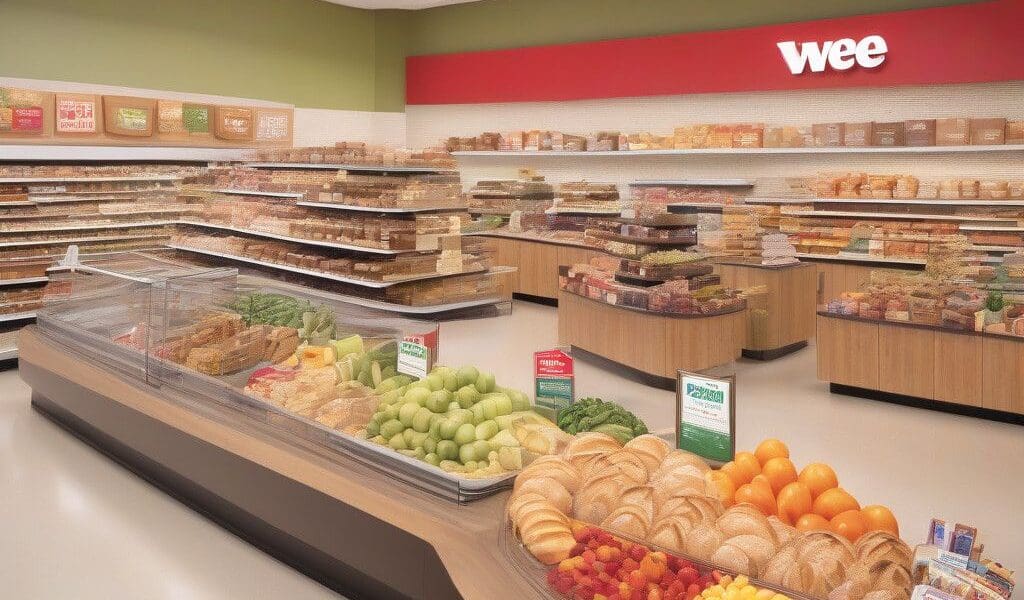As of November 2, Hy-Vee, a prominent Midwest grocery retailer, will take ownership of Webster’s Marketplace in Ripon, Wisconsin. This acquisition marks a significant development in the retail landscape of the region, known for its community-oriented approach and customer-centered service.
The transition to new ownership was initiated by an unsolicited offer from Hy-Vee, as highlighted by Candie Webster, the second-generation owner of Webster’s Marketplace. Established in 1987, Webster’s has been a cherished part of the Ripon community, well known for its commitment to quality products and local engagement. “My parents, Rob and Kathy, and I are excited to announce that we have accepted an offer to purchase our family’s grocery store. We are thrilled this offer came from Hy-Vee,” Webster stated in a press release addressed to the Commonwealth Ripon Press.
Hy-Vee’s employee-owned model, with over 570 locations across eight Midwestern states and an impressive annual revenue exceeding $13 billion, offers Webster’s Marketplace a promising future. The store will close briefly after selling off its inventory at the end of October, reopening soon after to continue serving the community.
A key highlight of the acquisition is the opportunity it provides for current employees. Candie Webster emphasized that this transition will result in enhanced employee benefits and career growth opportunities under Hy-Vee’s organizational structure. This shift aims to retain Webster’s dedicated workforce while expanding their skills and responsibilities.
Hy-Vee’s commitment to community welfare resonates with Webster’s own ethos. The retailer has a strong reputation for giving back, often supporting local initiatives and charities. This aligns with Webster’s philosophy, promising loyalty from existing customers and potentially attracting new shoppers. By maintaining similar values, Hy-Vee is likely to foster continuity in customer relations during this transition.
To further illustrate the potential benefits for local consumers, similar acquisitions in the grocery sector have often led to expanded product selections, improved store environments, and enhanced customer service. For example, when Albertsons acquired Safeway, many locations saw significant upgrades in store layouts and product offerings, resulting in increased customer satisfaction.
As consumers increasingly seek stores that offer a blend of community connection and diverse product ranges, Hy-Vee’s acquisition of Webster’s could position it uniquely in the market. With customer loyalty central to retail success, this transition could transform Webster’s Marketplace into a thriving example of how community-focused grocery stores can evolve under corporate ownership while retaining their local heart.
The press release did not specify major changes to store operations right away, indicating that Webster’s Marketplace will retain its branding for the time being. This strategy is crucial, as it allows Hy-Vee to smoothly integrate its operations while respecting the legacy built by the Webster family over decades. Maintaining recognition of the Webster name could also ease customer concerns about changes and preserve the familiarity that consumers cherish.
Hy-Vee ranks as No. 38 on the PG 100 list, which outlines the top food retailers in North America for 2024. This acquisition likely positions them well to enhance their footprint in Wisconsin, expanding their regional influence and bolstering their market share against competitors like Walmart and Aldi. The successful integration of Webster’s Marketplace into Hy-Vee could serve as a case study in effective retail transitions, illustrating how a company can successfully connect with a new community base while enhancing its operational efficiency.
As the grocery industry adapts to changing consumer behaviors and economic conditions, consolidations such as this one will continue to shape the retail landscape. Hy-Vee’s acquisition of Webster’s Marketplace is not merely a business transaction; it represents an opportunity to enhance community relations, improve employee welfare, and create a robust business model that prioritizes customers.
In conclusion, the acquisition of Webster’s Marketplace by Hy-Vee is poised to not only maintain but enhance the community spirit embedded within the Ripon grocery landscape. As customers await the store’s reopening, it will be crucial to watch how Hy-Vee implements its business practices while marrying them with the values that Webster’s Marketplace has long represented.











